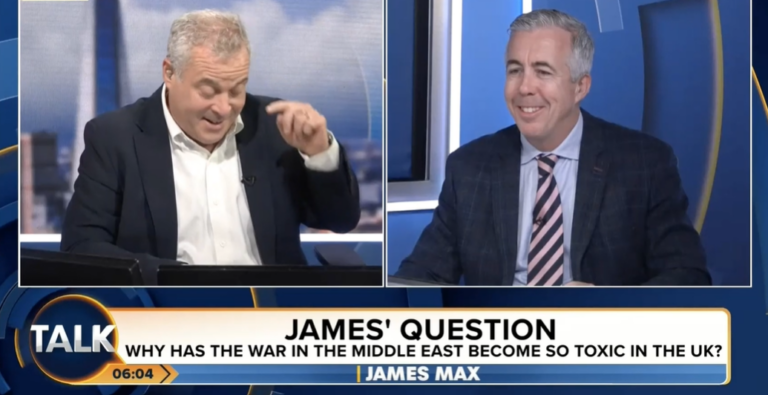With Tom Campbell, Interim Chief Executive at E-ACT and fellow trustee of Maritime Academy Trust
The Department for Education’s (DfE) White Paper announced plans to launch a review in May, with the aim of developing a regulatory system fit for a trust-led system. As part of this, the DfE will also provide a definition of trust strength.
Much of the reaction to the White Paper focused on whether a trust-led system is a good or a bad thing, less about what actually constitutes a strong trust and the metrics involved in quantifying this. Any form of measurement encourages a particular set of behaviours, whether intended or not. As former National Schools Commissioner Sir David Carter often said, we should focus less on weighing the pig and more on how to fatten it.
As trusts grow, develop and mature, what should we actually be measuring?
In the world of business, ‘value’ is assessed as the basis for a merger or acquisition. The value is a multiplier, not an aggregation: organisation A merges with organisation B, with an expected impact of AxB, not A+B.
In the A+B model there is no additional value, the whole is equal to the sum of the parts, not greater than. With AxB, business clearly has high expectations around synergy and creating value. Do we in the school sector have similar ambitions? What would a multiplier effect be when schools come together?
The infinite game
In his book ‘The Infinite Game’, Simon Sinek talks about how top businesses endure over time by not engaging in the various ‘finite’ games indulged by their competitors. Instead, they play the ‘infinite’ game.
A ‘finite’ game is played with the goal of getting to a set end, with set rules in place (like a board game or sport). An ‘infinite’ game is played for the purpose of continuing to play rather than to win (business or politics).
By having an infinite mindset, leaders will build stronger, more innovative, inspiring and resilient organisations, with benefits that may accrue over longer timescales than those associated with a finite mindset. Sinek says leaders should stop thinking about who wins or is the best, but about how to build and sustain strong and healthy organisations.
In trusts, a finite game could be about how can we get better results than trust X this year, or how can we narrow our disadvantaged gap compared to trust Y or can we get more ‘Good’ Ofsted reports than trust Z.
But trusts should be playing the infinite game, with an infinite mindset. How can we transform the lives of our children and communities? How can we deliver excellence in quality of education? How do we make sustainable, long-lasting change?
Playing the infinite game is about the war, not the battle. It is a commitment to the ‘Why’.
Should trust effectiveness be down to what one inspector says when they walk in the door on a given day under a given framework, or to one cohort of exam results which are subject to a myriad of contextual factors?
Or can we measure strong trusts through an infinite mindset, encouraging behaviours which lead to long-term transformative change rather than short-term results?
Do strong trusts have the security in both their leadership and governance to take a long-term view, to accept their civic leadership role over time and demonstrate resilience to the twists and turns from ever-shifting policies, regulations and frameworks?
Do strong trusts simply shrug their shoulders at current accountability measures and inspection outcomes and carry on doing the good work they know will over time make the difference?
Could it be that strong trusts are simply really good at what they do?
The mean versus the mode
At the moment, trusts are ‘ranked’ through performance tables published each year. The merits of publishing one this year aside (when schools are still dealing with the pandemic impacts), what value is there in these tables moving forward?
The reductive use of a mean to assess the ‘performance’ of a trust across different populations, with different profiles and characteristics seems statistically irrelevant. Mean Year 6 progress scores or mean Progress 8 tell us little about the strength and resilience of trusts. A trust might hide where it is failing with one school if poor performance is absorbed by a few other schools doing really well. Some trusts are considered strong but it is in fact the strong performance of a ‘flagship’ school holding it up, whilst the gap between that school and its struggling sponsored academies is growing, not narrowing. Do either of these examples indicate a strong trust? Or are they hiding struggling schools?
What about context? Take the case of a hypothetical trust with Progress 8 -0.4, with 75% disadvantaged pupils. It would be several league table pages behind a trust of -0.1 which has only 5% disadvantaged pupils. Which is the strong trust here? Which trust is bettering the national ‘average’?
So, what could an alternative method look like?
Could we look at relative gaps within trusts? That would help to avoid struggling schools hiding within a higher mean generated by a trust’s high performers, instead focusing on elevating all not some. If you want to go far go together, if you want to go fast go alone.
Could we also look at typicality rather than mean, ensuring contextual factors are meaningfully part of the equation?
What about using a modal analysis, particularly in large trusts which will have a larger data set to draw upon? What outcome is most common? Is mode then a better way than mean to evidence how well a trust improves the typical performance across a number of schools? Can that be linked to relative gaps and typicality?
When you spend a lot of time speaking to trusts of all different sizes, ages and contexts, you get a really good sense of why there is a push for a trust-led system, and just how much opportunity and possibility a strong trust offers. As we move toward a trust-led system, it would be a lost opportunity if it was hamstrung by regulations, accountability measures and statutory standards which approach it from a finite mindset and encourage short-term wins to essentially keep the wolves from the door.
To build a strong trust-led system which can achieve sustainable transformative change for children and communities, the system must be regulated and measured through an infinite mindset, encouraging organisational design which meets meaningful measures of success.





